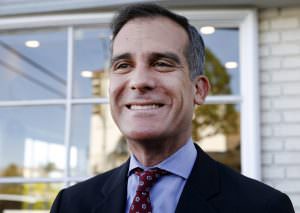Yuppies Finally Catch a Break
Now that baby boomers are starting to retire, young college-educated professionals are in hot demand. So cities like Memphis, Atlanta and Portland are fighting a war of hipness with one another -- struggling to attract the fickle young talent with everything from pub crawl public transportation to afternoon basketball.
Now that baby boomers are starting to retire, young college-educated professionals are in hot demand. So cities like Memphis, Atlanta and Portland are fighting a war of hipness with one another — struggling to attract the fickle young talent with everything from pub crawl public transportation to afternoon basketball.
Your support matters…New York Times:
In Lansing, Mich., partiers can ease from bar to bar on the new Entertainment Express trolley, part of the state’s Cool Cities Initiative. In Portland, Ore., employees at an advertising firm can watch indie rock concerts at lunch and play “bump,” an abbreviated form of basketball, every afternoon.
And in Memphis, employers pay for recruits to be matched with hip young professionals in a sort of corporate Big Brothers program. A new biosciences research park is under construction — not in the suburbs, but downtown, just blocks from the nightlife of Beale Street.
These measures reflect a hard demographic reality: Baby boomers are retiring and the number of young adults is declining. By 2012, the work force will be losing more than two workers for every one it gains.
Cities have long competed over job growth, struggling to revive their downtowns and improve their image. But the latest population trends have forced them to fight for college-educated 25- to 34-year-olds, a demographic group increasingly viewed as the key to an economic future.
Mobile but not flighty, fresh but technologically savvy, “the young and restless,” as demographers call them, are at their most desirable age, particularly because their chances of relocating drop precipitously when they turn 35. Cities that do not attract them now will be hurting in a decade.
“It’s a zero-sum game,” said William H. Frey, a demographer with the Brookings Institution, noting that one city’s gain can only be another’s loss. “These are rare and desirable people.”
Independent journalism is under threat and overshadowed by heavily funded mainstream media.
You can help level the playing field. Become a member.
Your tax-deductible contribution keeps us digging beneath the headlines to give you thought-provoking, investigative reporting and analysis that unearths what's really happening- without compromise.
Give today to support our courageous, independent journalists.






You need to be a supporter to comment.
There are currently no responses to this article.
Be the first to respond.